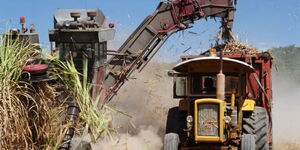The Common Market for Eastern and Southern Africa (COMESA) latest report on the value chain of cooking oil showed that oil firms overcharged Kenyans by 21% between July 2021 and December 2022.
According to the COMESA Competition Commission (CCC) report covering Eastern and Southern African states, Kenyan manufacturers sold overpriced cooking oil selling at an average of Ksh333 per litre instead of a fair price of Ksh274 per litre.
As a result of the hike in prices of cooking oil by manufacturers, consumers in Kenya ended up paying an additional Ksh67.7 billion during that period.
The report suggests that the overpricing occurred amidst rising global commodity prices and inflation which affected many countries, including Kenya.
While noting there has been inflation of oil prices occasioned by increased prices in crude palm prices and sea freight costs, the increase by manufacturers exceeded the rise in price of crude palm.
“The increases were larger than increases in crude palm prices and, while crude palm oil prices decreased after the first quarter of 2022, prices in the region remained high through to the beginning of 2023, meaning a much bigger gap between the consumer prices and this major input cost,” read part of the report.
Palm oil is a major determinant of cooking oil prices because it is the major input for refined oil in East African countries, as well as being an input into blended oil in other countries.
The report indicated that the vegetable oil market also portrays similar traits in terms of structure as it is oligopolistic in nature, dominated by a few regional players that are vertically integrated.
The integrated value chain by a few players from sourcing of oil seeds to crushing the seeds, refining the oil, and distributing the products control market share, therefore setting prices that are favourable to them as competition is low.
For the majority of 2019 and 2020, prices in Kenya, Zambia, and South Africa were in line with each other at just over USD1.6 (approximately Ksh207) per litre before the hike to upwards of an average of Ksh333 per litre.
Given that cooking oil is a staple in many diets, a 21 per cent increase in prices strained budgets and adversely affected food security for vulnerable families in the lower class.
The overcharge saw oil manufacturers net Ksh67.7 billion which would otherwise have gone into combating a myriad of issues facing the country including job creation, university funding and health insurance.












